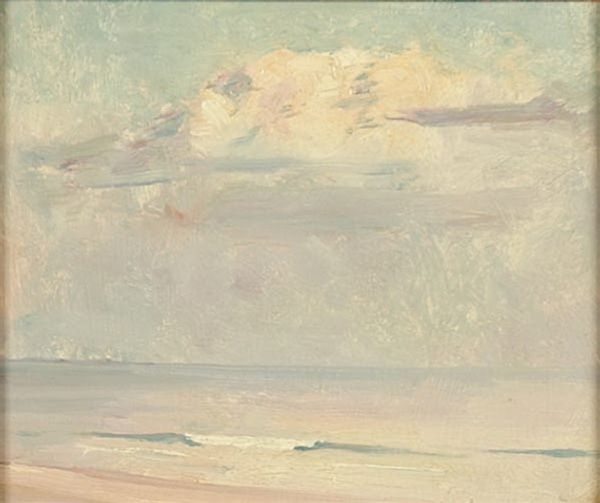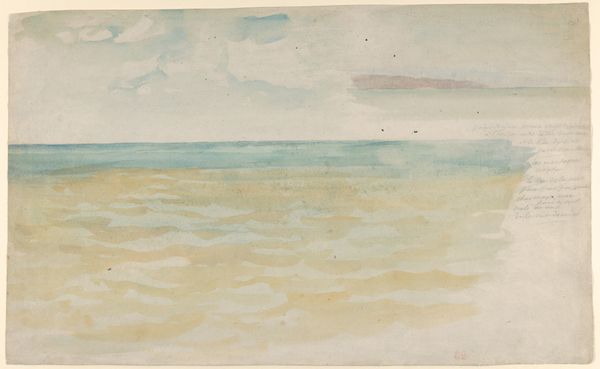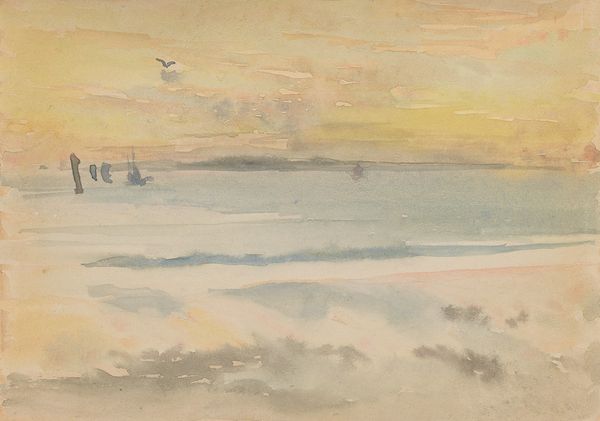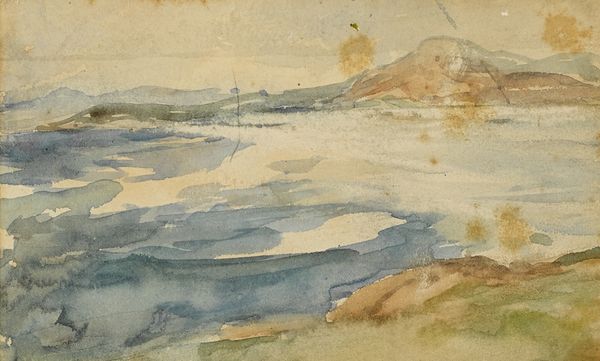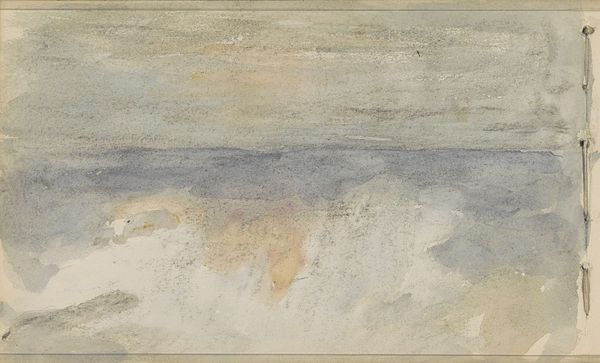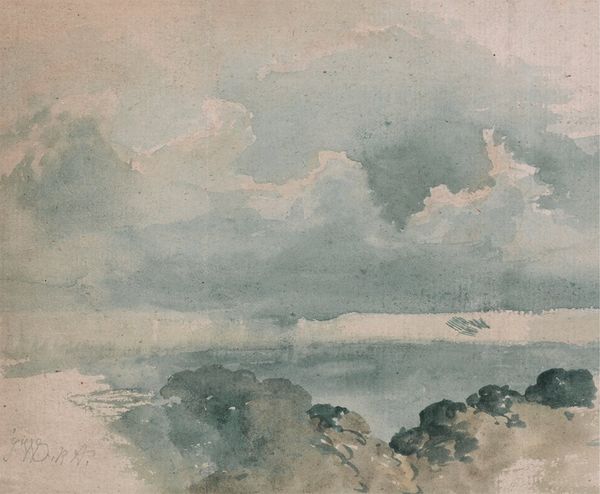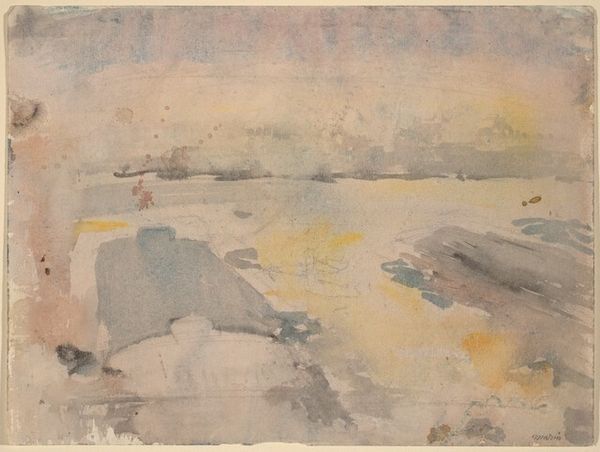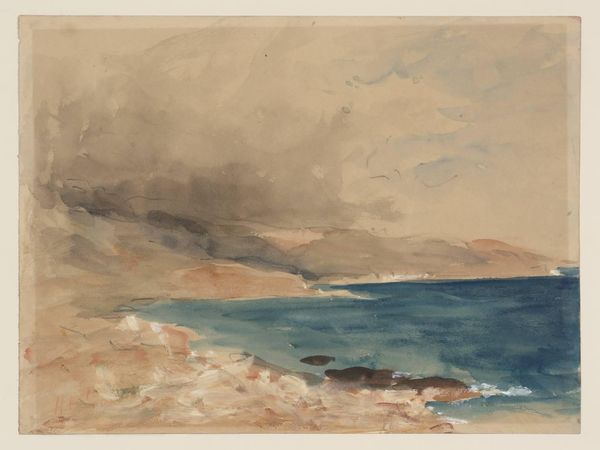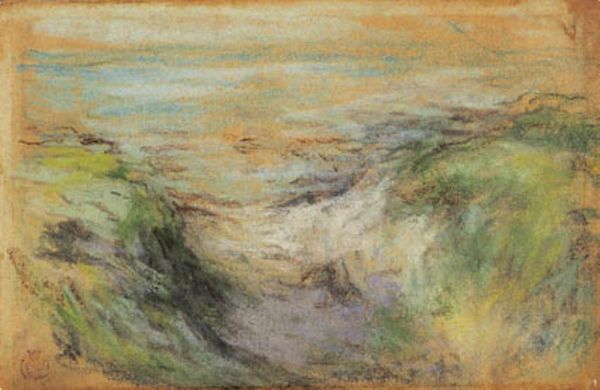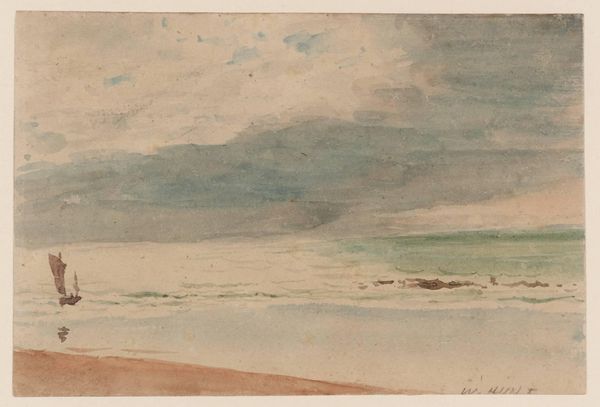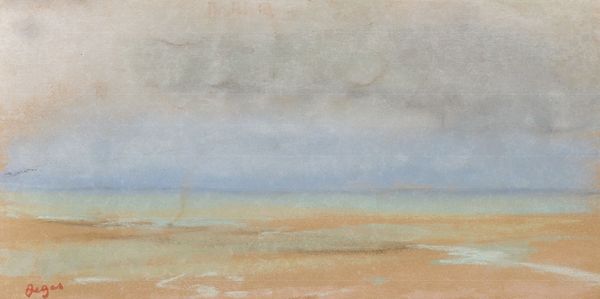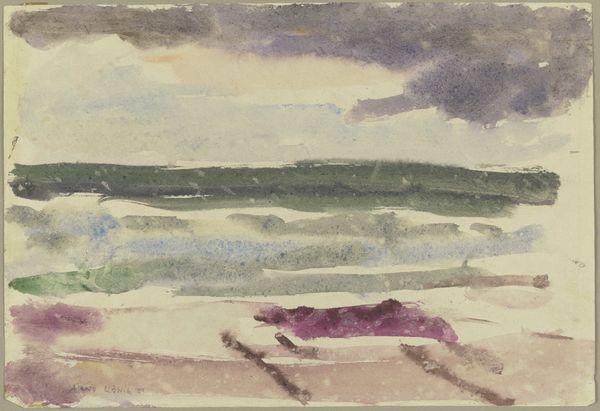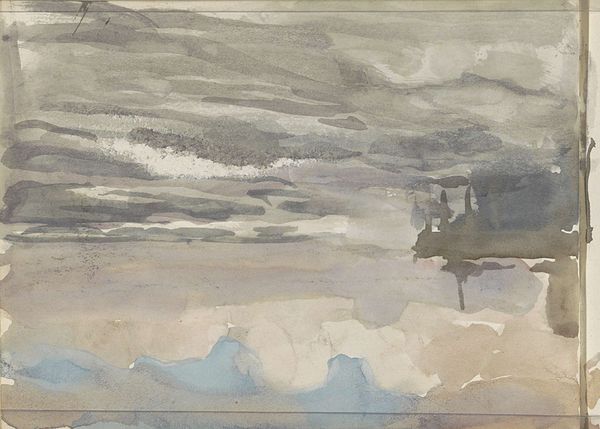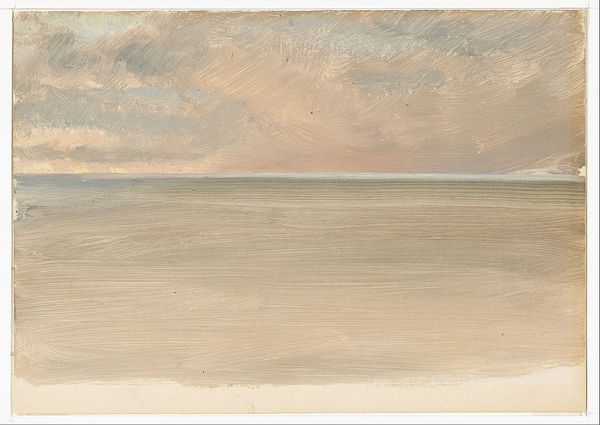
Copyright: Public Domain: Artvee
Curator: This is James Abbott McNeill Whistler’s, *The Ocean Wave*, created around 1883 or 1884 using watercolor on paper. What’s your immediate reaction? Editor: Hmmm... A wisp of a memory. A watercolor that feels like a sigh, doesn’t it? Ephemeral. Muted colors, sort of washing over you. Is this a melancholic beach? Curator: Precisely, and it's interesting that you say "memory." Whistler was deeply influenced by Japonisme and sought to capture a feeling or fleeting impression rather than a detailed representation. Remember, he was famously invested in "art for art’s sake." Editor: Yes! And that gets right to the cultural core of what Whistler was doing; pushing back against Victorian narrative painting, which so often delivered moralizing stories for public edification. Here, he gives us the personal, the intuitive. No grand statement here. Curator: Whistler moved between London and coastal towns during this period, seeking out these marine subjects. Note the subdued palette of blues, grays, and creams, very similar to many of his Thames river scenes, echoing through seascapes. Editor: And beautifully balanced, too! It almost feels abstract at first glance. Three layers of tones, each slightly varied – the sandy foreground, the slightly turbulent sea, and the hazy, amorphous sky. I wonder, do you think that his famous aversion to discussing or explaining his work might relate to this feeling? It feels deeply felt, not rationally conceived. Curator: Absolutely. He would present these landscapes, particularly his "nocturnes," almost as musical compositions. What resonates with us, decades later, is this incredibly evocative scene of solitude and perhaps introspection. It captures, I think, something deeply human in our relationship with nature. Editor: A delicate balance. He lets us bring our own story to it. Not something the Royal Academy would have understood! This is not about visual perfection; it's about... capturing a breath. Curator: Precisely, which makes this, for me, an enduring and evocative work, shifting painting away from mere imitation of reality, toward expression of inner experience. Editor: I’ll certainly pause next time to feel that space instead of overthinking it.
Comments
No comments
Be the first to comment and join the conversation on the ultimate creative platform.
